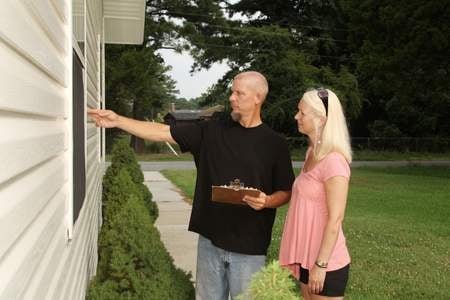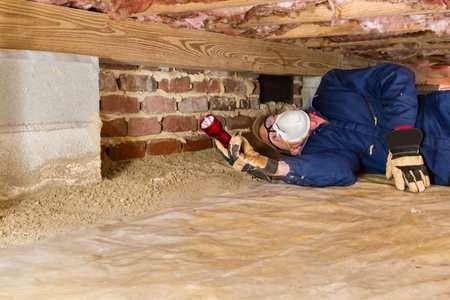When purchasing a home, it's essential to ensure that the property is in acceptable condition and free from any unexpected defects that could cost you significant money after closing.
 A licensed home inspector plays an essential role in this process by thoroughly examining the home's structure, systems, and components to identify any issues or defects that may not be apparent to the untrained eye. A home inspection in Massachusetts might uncover several potentially expensive defective items that could ultimately save you thousands of dollars in repair costs.
A licensed home inspector plays an essential role in this process by thoroughly examining the home's structure, systems, and components to identify any issues or defects that may not be apparent to the untrained eye. A home inspection in Massachusetts might uncover several potentially expensive defective items that could ultimately save you thousands of dollars in repair costs.
The following are some of the most expensive and common home inspection issues:
Damaged Roof Shingles: The roof is one of the most critical parts of a home, and replacing or repairing it can cost more than $10,000, depending on the size of the roof and other factors. A licensed home inspector will look for signs of defects, such as missing or damaged shingles, leaks, poor ventilation, improper flashing, or sagging. An inspector can also provide valuable information to the homebuyer about the approximate age and condition of the roof, helping the homebuyer make an informed decision about purchasing the home.
The roof protects from the elements and helps maintain the house's structural integrity. A damaged or poorly maintained roof can lead to water leaks, which can cause severe damage to a home's interior and create a breeding ground for mold and mildew.
Cracked Foundation: One of the most important aspects of a home inspection is inspecting the house's foundation. The foundation is the base upon which the rest of the house sits, and any issues with the foundation can seriously affect the home's stability and safety. A home inspector will check the foundation for signs of damage, such as cracks or settling, that could indicate a structural problem. They will also look for signs of water penetration and damage. Water entering a home can lead to mold growth or attract wood-destroying insects, and both can weaken a home's structure. A severe foundation problem could cost tens of thousands of dollars to repair.
Related: Pre-Offer Home Inspections. What Massachusetts Homebuyers Should Know
If a home inspector identifies foundation or structural support beam issues, they may recommend the homebuyer retain a structural engineer to assess the extent of the damage and recommend repairs. Addressing foundation and structural issues early on can help prevent further damage and ensure the safety and stability of the home.
Faulty Electrical: Another critical aspect of a home inspection is reviewing the house's electrical system. A flawed electrical system can lead to safety hazards such as fires, electrocution, or electrical failure, so the system must be inspected to ensure it is safe and functioning correctly. A home inspector will remove the electrical panel cover to examine the wiring, circuit breakers, and panel condition, and they'll identify whether water or pests are entering the panel. A home inspector also will check outlets, including confirming the outlets are grounded. Electrical issues can cost hundreds or thousands to repair.
Knob-and-tube wiring was an early standardized method of electrical wiring in buildings, commonly used in North America from about 1880 to the 1940s. According to the International Association of Certified Home Inspectors, the wiring is considered obsolete and can be a safety hazard. Knob-and-tube wiring consists of copper wiring, one hot and one neutral, run through porcelain knobs and tubes. The wiring is covered in insulation. The knobs hold the wire in place, often in contact with a house component, such as wooden beams. The tubes protect the wire from fraying or being in contact with wood or drywall – anything that would start a fire from overheating despite the insulation around the wiring. Depending on the extent of knob-and-tube wiring and the size of the house, the cost to remove it and replace it with modern wiring can cost from several hundred to tens of thousands of dollars.
If a home inspector identifies issues with the electrical system, they may recommend that a licensed electrician be brought in to assess the extent of the damage and make repairs.
 Leaky Plumbing: Another crucial aspect of a home inspection is assessing the house's plumbing system. The plumbing system is responsible for carrying water in and out of the house, and any plumbing defects can lead to water damage and mold growth, which can be costly to repair. A home inspector will check the main water line, pipes, fixtures, hot water heater, and drainage systems throughout the house to identify any issues or potential safety hazards. The inspector might also perform a functional flow test to determine if the home has adequate water pressure.
Leaky Plumbing: Another crucial aspect of a home inspection is assessing the house's plumbing system. The plumbing system is responsible for carrying water in and out of the house, and any plumbing defects can lead to water damage and mold growth, which can be costly to repair. A home inspector will check the main water line, pipes, fixtures, hot water heater, and drainage systems throughout the house to identify any issues or potential safety hazards. The inspector might also perform a functional flow test to determine if the home has adequate water pressure.
If a home inspector identifies plumbing problems, they may recommend that a licensed plumber be brought in to assess the extent of the repairs needed. While some plumbing issues might only cost a few hundred dollars to repair, resolving problems caused by water damage can cost many thousands of dollars.
Unmaintained HVAC System: It's also essential for a home inspector to examine a home's heating, ventilation, and air conditioning systems – commonly referred to as HVAC. There are various types of HVAC systems, and any issues with the system can lead to discomfort and increased energy costs. A home inspector will check the furnace or boiler, air conditioning unit, ductwork, oil tank – if the system is fueled by oil – thermostat(s), and signs of deferred maintenance to identify any issues or potential safety hazards. Inspectors will ensure all ducts, baseboards, or radiators provide adequate heat or air conditioning. Home inspectors typically do not turn on air conditioning in the colder months because doing so in the cold may damage the unit.
Related: How to Buy a Home in Massachusetts
If a home inspector determines the HVAC system is not operating correctly, they may recommend that an HVAC technician be brought in to assess the situation. Addressing issues can improve the comfort and energy efficiency of the home and ensure that the HVAC system is functioning when needed. The cost to replace a furnace, boiler, and air conditioning system can exceed $10,000.
Old Windows: Windows are another critical aspect of a home inspection. Windows play a key role in a home's energy efficiency. Issues with the windows can lead to increased energy costs and a less comfortable living environment. A home inspector will check the condition of the windows, including the frames, glass, and screens, to identify any problems or potential safety hazards. Common issues with a house's windows include broken or cracked glass, damaged frames or screens, and poor insulation. Even before the home inspection, a prospective homebuyer should have a rough idea of the age of the windows and whether they are single-paned or double-paned (one or two panes of glass).
If a home inspector identifies the need to repair or replace the windows, they may recommend that you call a window contractor to assess the situation and provide a quote for repairs or new windows. Addressing issues, such as poorly sealed or damaged windows, will help improve the energy efficiency and comfort of the home. Installing a new double-paned window in Massachusetts costs approximately $500 to $600 per window. Even smaller homes have 12 to 15 windows, so replacing windows is expensive.
The above is not a comprehensive list of potentially expensive defective items that a home inspection in Massachusetts might uncover, but it includes the most common. Each home is unique, with different components.
Homebuyers need to understand the potential costs of repairing or replacing these items and others when considering purchasing a home and using the information from the inspection to potentially negotiate with the seller or make an informed decision about whether to proceed with the purchase.
.png?width=400&height=85&name=2023%20BBO%20Logo%20800x170%20(400%20x%2085%20px).png)





